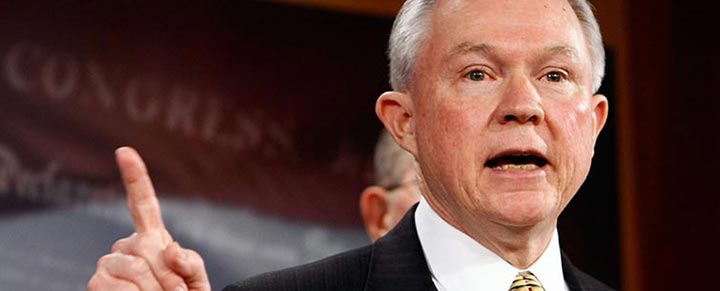
As people get hype over California becoming the nation’s largest legal cannabis market, Jeff Sessions yells, “hold up!” Sessions has officially rescinds the Cole Memo, the one thing that kept the feds out of the legal cannabis market.
Per The Cannabist
Attorney General Jeff Sessions is rescinding the Obama-era policy that had paved the way for legalized marijuana to flourish in states across the country, two people with knowledge of the decision told The Associated Press. Sessions will instead let federal prosecutors where marijuan is legal decide how aggressively to enforce federal marijuana law, the people said.
The people familiar with the plan spoke on condition of anonymity because they were not authorized to discuss it before an announcement expected Thursday.
The move by President Donald Trump’s attorney general likely will add to confusion about whether it’s OK to grow, buy or use marijuana in states where cannabis is legal, since long-standing federal law prohibits it. It comes days after pot shops opened in California, launching what is expected to become the world’s largest market for legal recreational marijuana and as polls show a solid majority of Americans believe the drug should be legal.
While Sessions has been carrying out a Justice Department agenda that follows Trump’s top priorities on such issues as immigration and opioids, the changes to pot policy reflect his own concerns. Trump’s personal views on marijuana remain largely unknown.
Sessions, who has assailed marijuana as comparable to heroin and has blamed it for spikes in violence, had been expected to ramp up enforcement. Pot advocates argue that legalizing the drug eliminates the need for a black market and would likely reduce violence, since criminals would no longer control the marijuana trade.
The Obama administration in 2013 announced it would not stand in the way of states that legalize marijuana, so long as officials acted to keep it from migrating to places where it remained outlawed and out of the hands of criminal gangs and children. Sessions is rescinding that memo, written by then-Deputy Attorney General James M. Cole, which had cleared up some of the uncertainty about how the federal government would respond as states began allowing sales for recreational and medical purposes.
The pot business has since become a sophisticated, multimillion-dollar industry that helps fund schools, educational programs and law enforcement. Eight states and the District of Columbia have legalized marijuana for recreational use, and California’s sales alone are projected to bring in $1 billion annually in tax revenue within several years.
Sessions’ policy will let U.S. attorneys across the country decide what kinds of federal resources to devote to marijuana enforcement based on what they see as priorities in their districts, the people familiar with the decision said.

